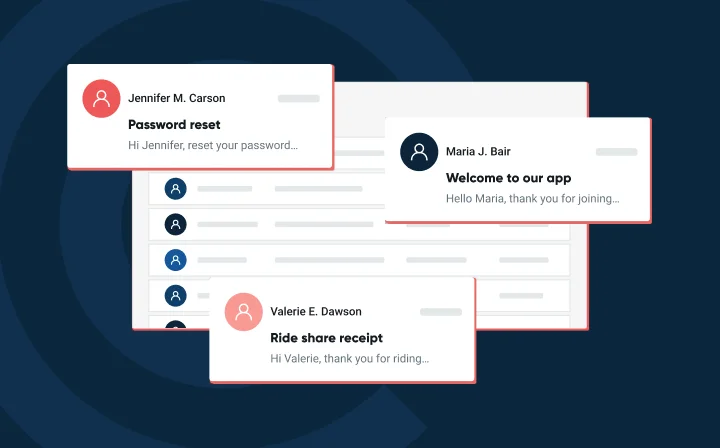How to check email domain reputation


Sending good email isn’t just about sharp copy or eye-catching design. If mailbox providers don’t trust your domain, your messages won’t land where they should. Domain reputation plays a big role in getting to the inbox, and too many senders ignore it until there’s a problem. In this post, we’ll walk through what domain reputation means, why it matters, and how to check it using tools that give you real visibility.
Domain reputation is your email domain’s trust score. It tells inbox providers like Gmail, Outlook, and Yahoo whether your domain sends legitimate messages or looks suspicious. Think of it as a credit score for your domain.
Your domain reputation affects whether your emails get delivered, land in spam, or get blocked altogether. It’s shaped by how often you send, who you send to, and how people react to your emails. It also factors in whether your domain is properly authenticated and how often it shows up on blocklists. We can sum this all up in one word: deliverability.
A high reputation means better inbox placement. A low one? That could hurt every part of your email program – from onboarding flows and password resets to time-sensitive notifications and receipts.
If you’re sending high-volume transactional or marketing email, domain reputation can make or break your success. A low score affects everything: engagement rates, delivery timing, and whether critical messages even show up.
Our latest State of Email Deliverability report found that 48% of senders say staying out of spam is one of their biggest challenges. Even more troubling? Over half don’t monitor deny lists or perform regular domain checks.
Poor domain reputation leads to:
And it’s not just about technical email sending. A weak domain reputation reflects on your brand’s reliability.
The best way to protect your sending reputation is to track it often. That starts with using the right tools.
Here are a few domain reputation checkers and lookup tools that provide helpful visibility:
Mailbox providers use real-time algorithms to decide whether your emails get delivered or filtered. Here’s what they care about most.
Authentication: Make sure SPF, DKIM, and DMARC are set up correctly. This confirms that your emails come from a trusted source and prevents spoofing.
Sending behavior: Consistent volume and timing matter. Sudden spikes in email activity can trigger filters, especially if your domain is new or inactive.
Engagement signals: Mailbox providers watch how people interact with your messages. If users open, click, and reply, that’s a good sign. If they delete, ignore, or mark as spam, your reputation will drop.
List hygiene: Inactive or invalid email addresses lead to bounces. Too many bounces tell providers you’re not maintaining your email list. That’s a red flag.
Deny lists and lookups: If your IP or domain shows up on blocklists like Spamhaus or Barracuda, your messages may not even be processed. Run a reputation lookup regularly to stay ahead of issues.
Make it easy to opt out. If users can’t unsubscribe quickly, they’ll mark your email as spam instead.
If your domain reputation needs help, don’t wait. Start by identifying problem areas and cleaning them up.
Here’s where to focus first:
Also, avoid tricks like aggressive re-sending or misleading subject lines. They might boost short-term opens, but they do long-term damage to your domain’s trust.
Mailgun was built to help technical teams manage high-performance email. That includes giving you tools to monitor sender score, email performance, and delivery issues in one place.
We support better domain reputation with:
Whether you’re handling transactional email, marketing campaigns, or system alerts, Mailgun gives you the visibility and tools to send with confidence.
Domain reputation isn’t just a score. It’s your signal of trust in the email world. If you’re not checking it, you’re missing out on one of the most important metrics in your deliverability program.
The right tools make it easy to run a domain reputation check, spot issues before they affect delivery, and take action to improve your score. And with a partner like Mailgun, you don’t have to go it alone.